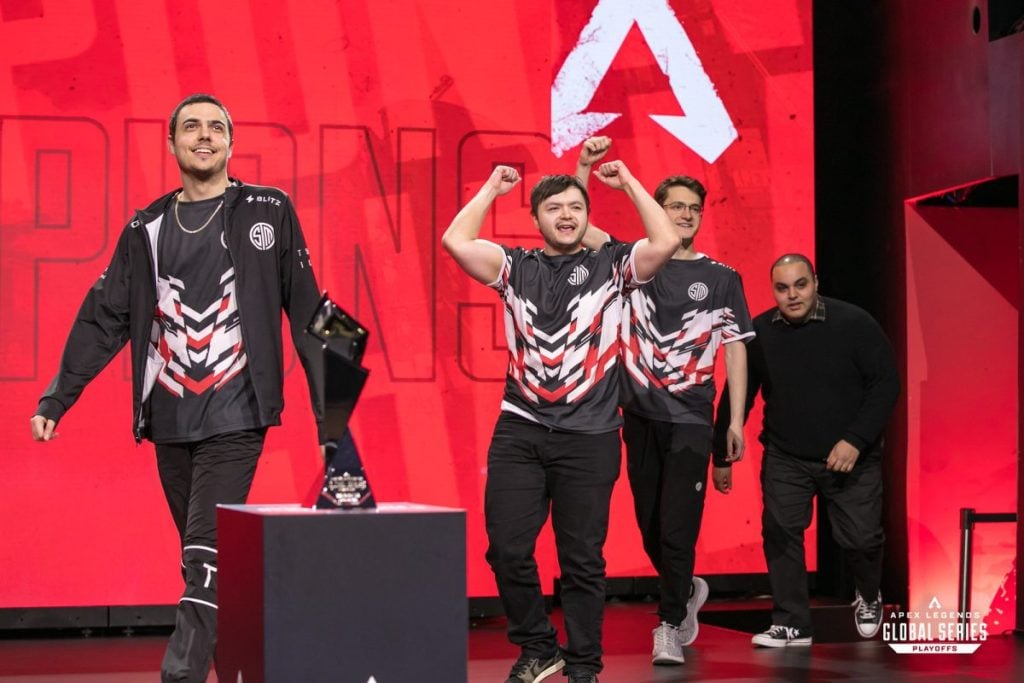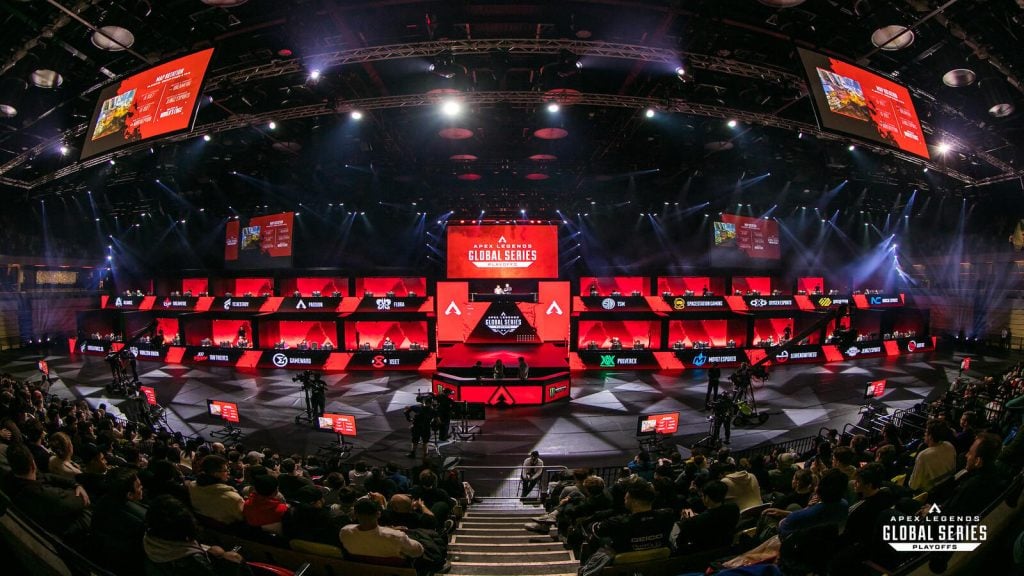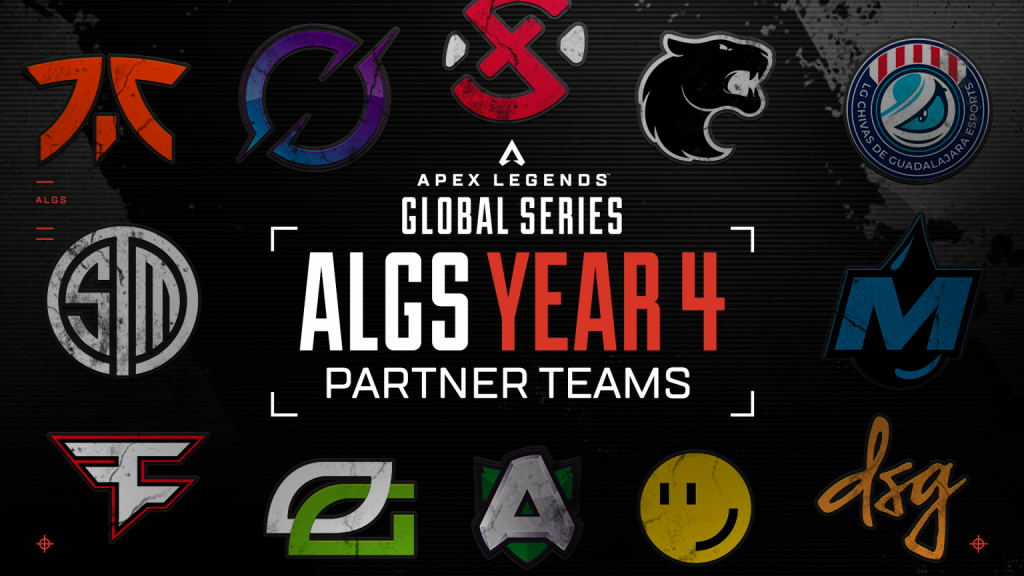
When looking at the battle royale esports scene, Apex Legends stands out for doing things a little differently than its competitors.
Launched during the battle royale craze in 2019, Apex Legends has managed to fuse the now iconic 100-player free-for-all mode with the design and functioning of a hero shooter. The game quickly turned into a notable esports title because — thanks to its unique blend of genres — Apex Legends has an equally unique kind of audience.
As early as 2020, organisations and players began pouring into the emerging title with its publisher (Electronic Arts) and developer (Respawn) building an ecosystem capable of attracting viewers. Despite the game’s popularity in its early months, its esports scene initially developed relatively slow until big organisations like TSM, FaZe Clan, Fnatic and OpTic Gaming started to invest in the scene.
Still, it has not been smooth sailing for Apex Legends esports. 100 Thieves left the competitive circuit ahead of the 2024 season, citing displeasure over the ALGS structure; G2 did the same in 2022. In 2022, EA reportedly shut down esports revenue-sharing discussions regarding in-game item sales. Meanwhile, NRG and other notable organisations left the scene before returning later on.
So, what is the current state of play for Apex Legends esports coming off the back of its Year 4 ALGS Split 2 Playoffs?
Firstly, it’s important to understand the layout of its main competitive circuit, the Apex Legends Global Series (ALGS). Primarily, the circuit is broken up into two major segments: the Challenger Circuit and the Pro League. The latter is anchored by three tentpole LAN competitions: the Split 1 Playoffs, Split 2 Playoffs and the World Championship.
“Each year the best of the best compete for the title of ALGS World Champion and their share of the total prize pool,” Jasmine Chiang, Senior Brand Marketing Manager at Apex Legends Esports told Esports Insider. “Year 4 of the ALGS offers over $5m (~£3.8m) in total prizing, including $1m (~£760,000) up for grabs at the Split 1 and Split 2 Playoffs, and $2m (~£1.5m) during the Championship.”
Spanning four regions, the Pro League has 120 teams (30 per region) competing across two splits to earn qualification points for international LAN competitions. Each tournament features the world’s 40 best teams which go on to compete on the main stage in front of a live audience. Although it may look like this circuit has fewer overall events compared to the likes of PUBG, another hugely popular battle royale title, what sets Apex Legends apart is its consistency. Viewership and attendance numbers fluctuate a lot in the battle royale genre, but it has been relatively stable in the ALGS.
This year’s Split 2 Playoffs, for example, just wrapped up in Mannheim, Germany with record attendance for a European event, 400,000 peak concurrent viewers (via Esports Charts). The event did not quite reach the 581,000 concurrent viewership record from 2023’s Split 2 Playoffs, but it is miles ahead of 2021 Split 1’s peak of 55,000.
Apex Legends’ Challenger Circuit also runs alongside the ALGS Pro League and offers a proving ground for up-and-coming ALGS teams. Meanwhile, Apex Legends is launching a new open tournament series called the BLGS, complete with a $400,000 (~£303,500) prize pool across four regions. This, in theory, should provide more valuable opportunities for teams to compete, whilst creating more enticing content for the scene’s fans.
Despite its hurdles with team deaptures, since 2020, the competitive circuit of Apex Legends has grown,year over year. This includes its viewership in North America, Europe and Asia, and its overall prize money.

“The ALGS Year 3 (the entire circuit of 2023) was our most-viewed season to date with a total watch time of 47.9 million hours, up 22% year over year,” Chiang said. “Going into Year 4, our priority was to continue that momentum.
“As part of that, we’ve put on creator show matches at our LAN events and brought multiview to FACEIT Watch. As a result, we’ve had our most attended event yet for Split 1 Playoffs in Los Angeles, and we’ve seen increased viewership. Going into 2025, that mandate doesn’t change: it’s continuing to prioritise what our players and fans want most.”
From a business standpoint, Apex Legends has ultimately decided to focus on providing stability to select organisations as opposed to absolute openness to all. As a result, the ALGS has a Partnership Programme that offers select teams a financial stipend as well as opportunities to connect with fans through booths at events, side competitions, media opportunities, professional photoshoots and more.
Chiang explained: “We worked closely with teams and players throughout this process and explored a range of options when deciding what would provide the most value for our Partnered Teams in Year 4.
“While multiple avenues were discussed, we opted for an approach that provided guaranteed funding, in-person engagement opportunities, and other tangible support. We believe our current Partnership Programme offers the most fruitful, sustainable product for our esports organisations and our ecosystem. That said, we’re always open to feedback and will continue to explore additional ways to provide value to our teams in the future.”
Apex Legends was a relatively early adopter of the ‘partner club’ model, a structure that has since become commonplace in esports after being used by games such as VALORANT, PUBG Mobile and PUBG. However, despite other battle royales using this model, one thing that will always set the ALGS apart from its competitors is its proprietary and trademarked format, Match Point.
Having 100 players compete at the same time is complicated. What’s even more challenging is picking a winner that takes into consideration the performance of a team during the whole tournament, not just the last game where situations can rapidly change in battle royales. Other competitions use a regular points system: the highest in the chart after a set amount of games, is the winner. Apex Legends wanted to do something more out of the box for its competitors.

“The idea for Match Point came about as early as 2017 when battle royale esports were gaining global popularity,” Chiang said. “The prospect of battle royale competition was incredibly exciting but when it came to the final moments, winners were being declared early on due to dominant leads, or there were delays as admins needed to calculate scores.
“When we were considering the format for Apex Legends esports, we wanted to find a way to keep fans at the edge of their seat.”
John Nelson, the Head of Apex Legends Esports, came up with the now-patented format. To win an event, a team must first reach 50 points across two or more games to be Match Point eligible. Once a team hits 50 points or higher, the organisation needs to achieve the coveted victory royale (being the last men standing) to be crowned Champions. It’s almost guaranteed that multiple teams will reach match point eligibility after a few rounds so the winner of the latest match becomes the winner of it all. This aims to keep tensions high throughout every game and every play.
One of esports biggest balancing acts though is that developers often dictate a game’s path and popularity, all whilst trying to still make a title that appeals to casual gamers and maintains relevance. Apex Legends is no different. Routinely making updates that add features, characters and maps into the game can revitalise its popularity from a competitive level. However, it can also cause balance issues that may negatively affect the game’s experience from an esports viewer’s perspective.
Despite the game’s problems, Apex Legends’ esports competitions remain refreshing, particularly from a broadcast and structural standpoint. The game’s esports ecosystem has also started to gain a track record of success (alongside some admitted failures), which includes growing numbers, an innovative format and a globetrotting circuit. The Year 4 World Finals, for example, will be held in Japan in January 2025 for the first time ever.
Simply put, Apex Legends looks set to remain a powerhouse of the battle royale genre moving forward.



